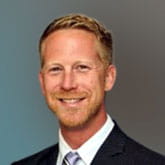In this uncertain time, healthcare leaders are stressed from overwork, anxious about the very disruptive impact COVID-19 is having on practices and concerned about the safety of themselves, their families and co-workers. It is not surprising then that hundreds of ad hoc decisions are being made each day, many of which will have long term influence on their ability to endure through the pandemic and the sustainability of their practices.
Many leaders are realizing they want to “Dial-a-Friend” during this chaotic period, to connect with a trusted advisor who can help gut-check their instincts, provide perspective, and help them think through options and repercussions before a rash decision sets them on a path they may regret.
Our team of NextGen® Advisors is engaging with clients on a range of tactical and urgent topics such as addressing disruptions to face-to-face encounters, the shift to virtual visits, and understanding local regulatory changes that are influencing client revenue stream. At the same time, the leaders we are engaging with recognize they need to think strategically about the long term implications of the decisions they make today, as repercussions will be felt for months and perhaps multiple quarters or years to come.
Practices have spent several weeks actively trying to figure out which locations to temporarily close and how best to rotate staff to maximize coverage while ensuring staff safety and other top of mind concerns. In times like these, leaders can benefit from the chance to “slow down to move fast.” It may seem counterintuitive given the pressure leaders face to respond urgently in a time of crisis, however, decisions influenced by time pressure or the need to demonstrate action for action’s sake may be poorly conceived and lead to less than optimal outcomes.
Many healthcare leaders are recognizing the need for objective, external expertise to help set the next course of action and the short-to-medium term strategies that will help ensure their practice can stabilize and have the resilience to survive the toll of COVID-19.
We welcome your thoughts and insights regarding what steps your organization is taking to prepare for a sustained disruption to clinical practice - from implementing new technologies to advancing new partnerships or entering innovative agreements with payers. To share your insights or if you need to “Dial-a-Friend,” please reach out to us at advisors@nextgen.com.
Meet NextGen Ambient Assist, your new AI ally that generates a structured SOAP note in seconds from listening to the natural patient/provider conversation.
Read NowCategories
- Analytics and Reporting
- Regulatory Updates
- Artificial Intelligence (AI)
- Community Health
- COVID-19
- Dental
- Documentation
- Electronic Health Records
- Financial Management
- Health IT 101
- Industry news
- Integrated Care
- Interoperability
- Mobile EHR
- NextGen Advisors
- Patient Experience
- Practice Management
- Provider Experience
- Patient Engagement
- Population Health
- Revenue Cycle Management
- Small Practice
- Telehealth
- Value-based Care
